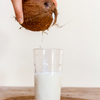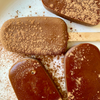The Gut-Skin Connection

More than skin deep
Your skin is more than just the ‘stuff’ that covers your face and body (1). It has many important responsibilities including protecting your body, picking up touch and sensation, regulating your temperature, immunity, synthesising vitamin D and detoxification (2).
When you experience eczema, rosacea, acne, dermatitis, redness, flushing and pigmentation all of these require consideration for a thorough outside-in approach to see if one or more of your skins roles has been compromised.
But an outside-in is only one side of the coin; what about the health of your insides impacting your skin?
Classically, someone who says ‘I’ve tried everything’ referring to the numerous lotions, prescriptive cream and medications like the pill, antibiotics or Accutane without success, may be experiencing a more than skin deep issue.
I say this with NO judgement, rather personal experience as this is TOTALLY my story too. I was put on the pill, accutane and antibiotics when I was a teenager for my skin issues and still I had skin issues.
What their skin is really reflecting that there is something internal that is contributing to its state, which requires a holistic approach from both the inside-out and outside-in. One of the many internal factors that may be contributing to your skin’s current condition is your gut.
The Gut-Skin Connection
To learn more about how your insides and how it may impact the health and vitality to your skin, here are six ways your gut health could be playing a role.
1. How does inflammation affect your skin?
For acne there is a relationship between your skin, gut and brain (that’s right a triple connection). Anxiety and depression are commonly associated in those that experience acne. These psychological stressors may cause your gut flora to produce different neurotransmitters (such as serotonin) or hormones. The production of these products may increase intestinal permeability (leaky gut), causing inflammation and absorption and circulation of unwanted products, which can reach the skin and cause havoc (3).
2. How your skin is related to your immune system
In dermatitis, a leaky gut contributes to a destructive feedback loop by allowing the absorption of poorly digested food, microbes, and toxins into the circulation to reach target tissue, including the skin, where they trigger a series of immune responses (in particular Th2) that can resulting in further tissue damage (3).
Studies have also found a relationship between rosacea and the presence of small intestinal bacterial overgrowth (SIBO). SIBO may alter immunity and trigger rosacea by increasing a complex chain event of immune events and inflammatory as well as influencing your gut bacteria’s immune behavior. One study found that after treatment of SIBO complete resolution of rosacea in 78% of the patients with SIBO was observed (4).
3. How your stomach affects your skin
Low stomach acid (hypochlorhydria) is frequently associated with acne. Low levels of stomach acid allow large intestinal bacteria to migrate up to the small intestine, creating a state of intestinal dysbiosis and SIBO. SIBO’s presence results in the production of toxic metabolites, which can injure gut cells, increase intestinal permeability, and ultimately lead to systemic inflammation(3).
4. How your gut can affect your skin
Psoriasis is commonly accompanied by inflammation in other organ systems. 7-11% of inflammatory bowel disease (IBD) patients are diagnosed with psoriasis, making the association with GI inflammation particularly strong. There is depletion of good bacteria, including Bifidobacteria, Lactobacilli, and Faecalibacterium prausnitzii as well as colonisation with certain ‘bad’ bacteria such as Salmonella, Escherichia coli, Helicobacter, Campylobacter, Mycobacterium, and Alcaligenes (3).
The prevalence of Helicobacter pylori infection in the general population is approximately 25–30%. Some studies reported a higher prevalence (closer to 88%) of H. pylori infection in patients with rosacea and improvement of rosacea skin symptoms after H. pylori eradication (4, 5).
5. What nutrients affect your skin
The presence of SIBO means the bacterial population competes for nutrients and impairs the absorption of fats, proteins, carbohydrates, and vitamins. Malabsorbed nutrients, including folic acid, zinc, chromium, selenium, and omega-3 fatty acids have been shown to influence oxidative stress, have been implicated in the pathophysiology of acne vulgaris (3).
6. How your diet can affect your skin
In dermatitis the classic western diet that is low fibre and high fat significantly alters the gut microbiome, resulting in poor levels of good immune modulating bacterial by-products, such as short fatty acids (SCFAs). SCFAs have powerful anti-inflammatory actions and help keep your gut lining healthy. Dietary choices that resulting in low SCFAs products compromise your body’s immune tolerance and be involved in both autoimmune and allergic skin conditions (6).
There is a link between atopic eczema patients having specific immune responses involving immunoglobulin G (IgG) to foods such a gliadin (found in gluten). Its is suggestive that suggest that antigen absorption from the gut may play a role in the development of atopic eczema, and lend some support for the use of elimination diets in this condition (7).
How you can improve your skin
The connection between the world within the gut and with each skin condition is vast and complex and can result in a lot of wasted time effort and energy (not to mention emotionally exhausting) if you don't understand the complete picture.
The key to your success in achieving your skin goals is to team up with qualified, holistic naturopath so you can receive the individualised outside-in and inside-out approach you require.
The combination of functional gut testing for things like SIBO, leaky gut, food intolerances and gut bacteria imbalances, with tailored and specific dietary advice, and nutritional or herbal support can help you and your skin feel better quicker.
All of this is available in Bloated to Body Confident which the step-by-step strategy for finding your root cause, comprehensive functional and diagnostic testing, personalised dietary advice, holistic support, effective treatments and sustainable solutions, empowering evidence-based information and a clear action plan.
-
Posted in
Gut Health







